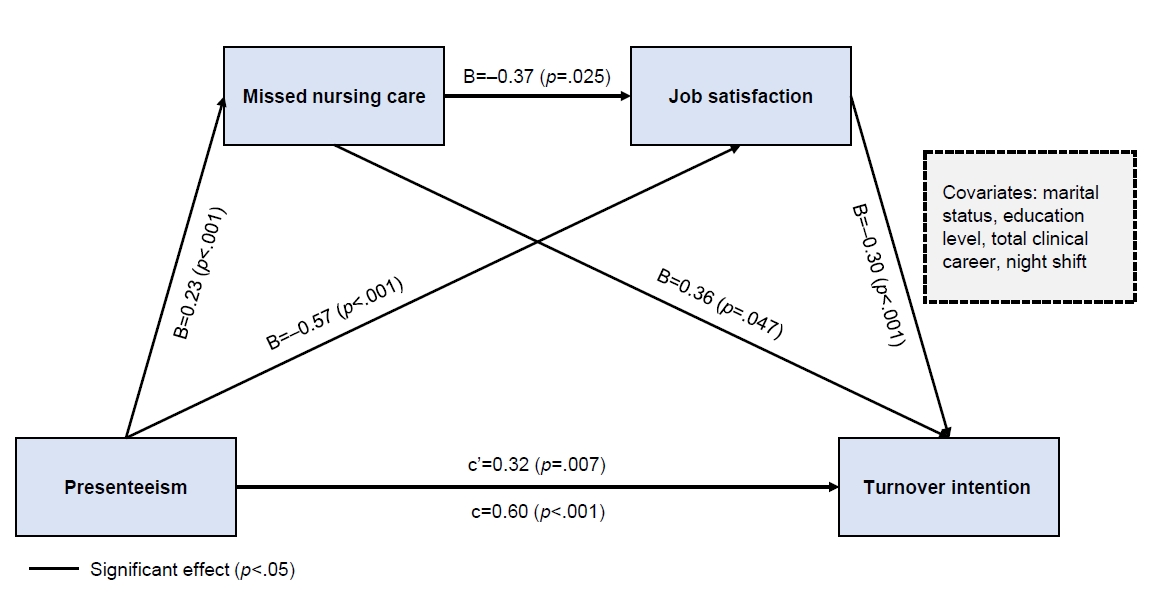-
Effects of presenteeism on turnover intention in clinical nurses through the serial mediating roles of missed nursing care and job satisfaction: a cross-sectional predictive correlational study
-
Hyeonseon Cheon, Seok Hee Jeong, Hyun Kyung Kim, Hyoung Eun Chang
-
J Korean Acad Nurs 2025;55(4):584-597. Published online November 10, 2025
-
DOI: https://doi.org/10.4040/jkan.25015
-
-
 Abstract Abstract
 PDF PDF ePub ePub
- Purpose
This study aimed to investigate the two-mediator serial mediation effect of missed nursing care and job satisfaction on the relationship between presenteeism and turnover intention in clinical nurses.
Methods
A cross-sectional predictive correlational study was conducted, and the participants were 208 clinical nurses working in advanced general hospitals in South Korea. Data were collected from October 6 to November 7, 2023 using self-reported questionnaires, including general characteristics, presenteeism, missed nursing care, job satisfaction, and turnover intention. Data were analyzed using IBM SPSS/WIN ver. 29.0 and PROCESS macro ver. 4.2.
Results
Missed nursing care and job satisfaction exhibited a double mediating effect on the relationship between presenteeism and clinical nurses’ turnover intention. In addition, missed nursing care showed a mediating effect on the relationship between presenteeism and clinical nurses’ turnover intention. Job satisfaction had a mediating effect on the relationship between presenteeism and clinical nurses’ turnover intention. Presenteeism had a direct effect on missed nursing care, job satisfaction, and turnover intention. Missed nursing care exerted a direct effect on job satisfaction and turnover intention among clinical nurses. Job satisfaction had a direct effect on turnover intention.
Conclusion
To reduce nurses’ turnover intention, it is essential to develop and implement programs focused on preventing presenteeism. Additionally, organizational initiatives should prioritize active support for nurses’ health management, alleviating the shortage of nursing staff, augmenting job satisfaction, and improving the overall working environment.
|




